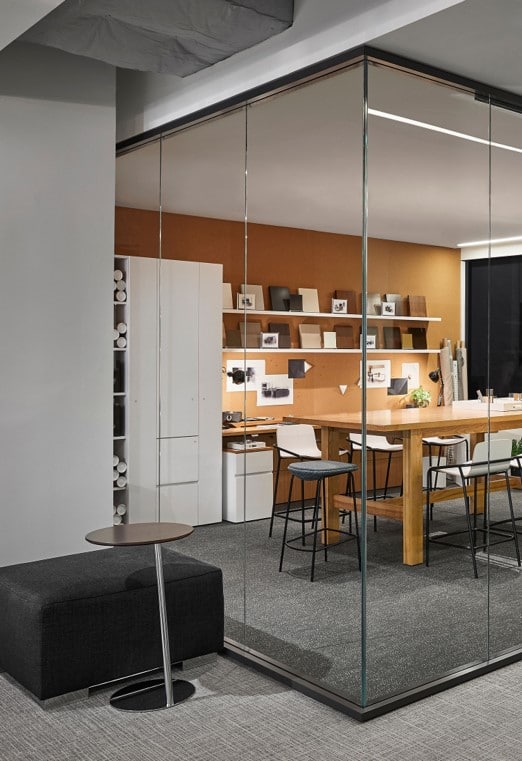 Love it or hate it, there’s no getting away from the fact that today’s work place is a melting pot of generations whose success depends on learning to work together as at no other time before in history.
Love it or hate it, there’s no getting away from the fact that today’s work place is a melting pot of generations whose success depends on learning to work together as at no other time before in history.
The Baby Boomers, born between 1946 and 1964 are at their youngest, in their 50’s, whilst Millennials at their youngest are just 15 years old. There seems to be a great deal of confusion on how the oldest Millennials may be. Some say that the Millennial generation began in 1982, which means there’s an overlap between them and Generation X (1965 – 1984) and Generation Y (1978 – 1990)
The first,most obvious ramification of such an age diversity in the work place is that you can easily have a ‘parent’ or even ‘grandparent’ generation working alongside much younger people – people they could easily consider ‘children’ or ‘grandchildren’. In the past, grandparents were generally retiring by the time grandchildren were graduating college and entering the work force. Now, however, as a result of the economic turmoil over the past decade, many grandparents are staying gainfully employed as a matter of choice and / or necessity.
There are advantages and disadvantages to this multi generation situation. The younger generations bring fresh ideas, outlooks and passion into the work place. The older generations bring savvy life and business experience. The key is finding a way to meld all the advantages from each generation together and avoid the very natural conflicts that are likely to arise.
Baby Boomers and, to a certain extent Gen X’ers, are used to figuring out solutions either alone or as part of a team. Millennials have been educated differently. Team, rather than individual projects have been a big feature in school curriculun for the past few decades. Consequently, Millennials crave the ‘group energy’ of working in a team. They want to feel part of a community. They like to do things together and they feed off each other’s vision. They want mentors and feedback on their performance, but also want the freedom to perform their work in the way they feel best.
While older generations seek to create life / work balance by carving out a sliver of personal time in a day filled with responsibilities, obligations and deadlines, the younger generation sees the entire day as ‘life’ with little delineation between work and personal time. The result is that Millennials bring a more relaxed and casual attitude to work – which can, at times, be extremely irritating to their elders.
Millennials are known as the ‘technology’ generation. They need and want the latest, greatest technological capabilities both in the office as well as in their personal lives. While Baby Boomers are the fastest growing demographic on Facebook, they don’t have the same connection and comfort level with technology as Millennials. A laptop is great, and so is a smart phone or tablet, but they generally prefer old fashioned face-to-face human interaction rather than texting and endlessly interacting with social media friends.
Baby boomers think of reaching a management position something to be aspired to and earned over time through performance. Millennials, on the other hand, feel that management is their destiny and expect to fulfill that reasonably quickly after entering the work force. Baby Boomers think of work in terms of a corporate office with a dress code, Millennials think of work in terms of tasks that can be performed anywhere with wi-fi. Baby Boomers grew up in a 9 to 5 work day era, whereas Millennials love the flexibility to work where, how and when they prefer.
Millennials take it for granted that they’ll move from employer to employer within a few years of each new job. Boomers tended to want to stay with the same employer as long as possible, advancing up through the ranks and only moving when this was no longer possible.
Traditionally Baby Boomers have coveted the house in the suburbs with the picket fence and two cars, Millennials want to be in the heart of the action, preferably within walking distance of work. They prefer not to drive, or even own a car. Many see owning real estate as being unaffordable and instead put their resources into buying experiences rather than fixed assets.
The world has changed drastically over the past half century. It’s not surprising that current generations should have been strongly influenced by the technological, social and economic situations prevailing at the time of their inception.
The many differences between generations can be defined ad infinitum,
but, the truth is that we all have something we can learn from the generations
before and after our own.
Whether it’s Baby Boomers learning how to use technology more easily from Millennial co-workers, or Millennials learning solid management skills from supervisors, each generation contributes to a synergistic, holistic work environment.
There’s really no need for generational factions at work. The fact is, that the work place is rather like an extended family, where the members, though they may not always agree, understand that they’re in it together. The important thing to remember is that by cultivating an environment of openness to new ideas and tolerance of others foibles, we can all work together toward a common goal and in doing so, we all succeed.
Read more on this topic here:
https://workdesign.com/2015/04/millennials-in-the-workplace-video/
https://www.pwc.com/gx/en/managing-tomorrows-people/future-of-work/millennials-survey.jhtml
https://www.businessinsider.com/what-you-should-know-about-millennials-at-work-2014-11
https://humanresources.about.com/od/managementtips/a/millenials.htm

 Love it or hate it, there’s no getting away from the fact that
Love it or hate it, there’s no getting away from the fact that 

